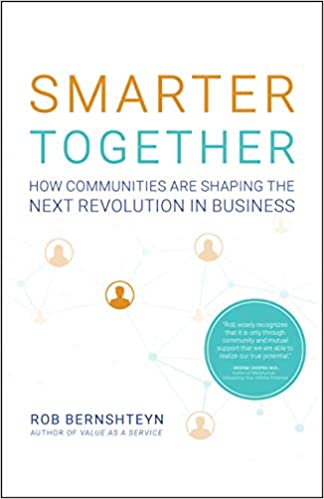Community intelligence benefits all the members of the community who are participating without doing anything extra.
The idea is very simple, yet powerful. If you have been using Waze while driving you’ve already been using this concept. Waze pools all the individual data and draws real-time intelligence from the individual data-points and serves the wisdom back to you so that you can make better decisions now. Take the next left to avoid traffic congestion and you will arrive 15 min earlier!
Revealed preferences is the term economist use for consumer behaviour in this context. The concept is the same. It’s not what you think or would do it’s what you have done. The product you have purchased, the action you have taken.
Pure raw data will not do since this will give away your privacy and it’s not informed data. The patterns and trends are valuable, and they become evident from lots of individual data points from the community members.
Waze does not need to know who you are. It’s not relevant. The fact that you’re driving a certain route is. This is valuable in aggregate.
The concept can be applied widely. Earlier this year, Covid-19 changed a lot of consumer behaviour almost instantly. With community intelligence, the emerging shifts and trends could have been seen earlier.
This works the other way around, too. Creeping trends become evident, and you can act earlier when something becomes out-dated or redundant. If you only have a single vendor or segmented data from the market your predictions and intelligence can be biased or tilted in the wrong direction.
It takes a community to serve the community. To get you have to give. To give you need to evaluate what’s worth sharing and what’s too critical to give up. Data is an asset if you use it but it can be a liability without proper use.
Sharing data should always be your choice and done with your consent. This is still an emerging field but Bernstheyn calls community intelligence as the third wave after value-as-a-service and the original wave of pure transactional one-time business exchanges.
The community intelligence builds upon three foundational components: data/intelligence, information sharing and collaboration. This is a very intriguing concept because it’s very demanding on each player on trust, reciprocity and cooperation.
Certainly, a fruitful playground for game theory researches to get real-life data on how competitors are cooperating and sharing company internal operational data to gain insights and keep up with the other players in the industry.
Soon, you may need to be part of the communities or you’re staying behind. You simply cannot provide enough value to your customers without this type of information. It becomes hard or impossible to make informed product and operational decisions without. Benchmarking, faster decision-making and increased operational efficiencies are all directly connected to the value you provide to your customers.
After all, a community is a group of people with shared interests or purpose. Another word for it could be business.

